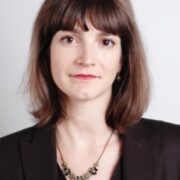
Professeure à PSE
Présence Sur place
Ce séminaire d’économie de l’environnement est destiné aux doctorants, post-doctorants et enseignants chercheurs de PSE-Ecole d’Economie de Paris et du CREST. Il propose un cadre convivial et informel pour présenter des papiers empiriques portant sur des questions environnementales. Comme son nom l’indique, il n’a pas vocation à être régulier. Si vous souhaitez faire une présentation au cours de l’année, vous pouvez contacter Hélène Ollivier et Geoffrey Barrows (geoffrey-masters.barrows@polytec).

Professeure à PSE

Chercheur au CNRS
Du
Heure d’ouverture –
Du
Heure d’ouverture –
Du
Heure d’ouverture –